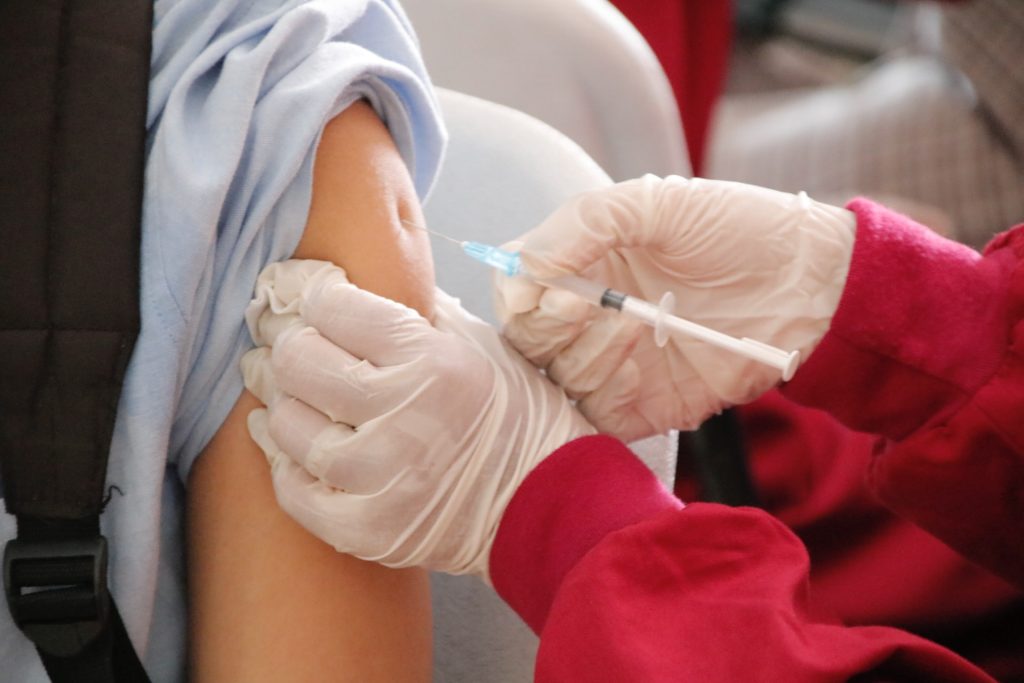Recently, there’s been a lot of controversy regarding vaccines and vaccination. The outbreak of COVID19 has impacted every single sphere of our lives, including our faith in the healthcare system.
Even though the COVID19 vaccines have been authorized and deemed highly effective at preventing serious disease, people are still hesitant about whether or not they should get vaccinated.
We compiled a list of 5 important reasons why you should get vaccinated, and not just with the COVID19 vaccine.
1. Getting a vaccine can mean a difference between life and death
Viruses and viral infections can be deadly. So far, around 5.28 million people have died since the corona COVID19 outbreak. And even before the infectious SARS-CoV-2 virus, many people died from different vaccine-preventable diseases.
The thing is that not just coronavirus, but any other virus or bacteria can cause life-threatening complications. Not to mention that if you get ill, you risk infecting your loved ones, sometimes without even knowing.
Getting vaccinated can mean a difference between life and death. Getting vaccinated can help you strengthen your immune system, and create a protective antibody response without you having to become ill with any virus.
2. Vaccines are safe and effective
There are government agencies that decide whether or not vaccines are safe and if they should be authorized for use. Specifically, in the US, the FDA (the food and drug administration) gives the green light for the vaccine to be used.
Even though COVID19 vaccines are being developed rather quickly, the development processes and procedures that ensure the safety of any vaccine are being respected and that’s why various COVID19 vaccines are authorized for use. Once made, vaccines are stored in the vaccine fridge at between 2 and 8 degrees Celsius. They are stored in their original packaging until ready to be administered.
With that said, agencies all over the world are still monitoring and will continue to monitor the safety of COVID19 vaccines, just as any other vaccine.
3. Vaccines won’t cause the disease they are designed to prevent
There are different types and kinds of vaccines, but what they all have in common is that they are biological. This means that they are made of a virus or bacteria, or parts of them. The active components of any vaccine are called antigens, are responsible for triggering the immune response once the vaccine is in the body.
Most vaccines are inactivated vaccines, which means that it’s impossible to contract the disease from the vaccine. Some vaccines contain live organisms, and when vaccinated with them, they may lead to a mild case of disease. A good example would be a chickenpox vaccine that can cause a mild rash that is in no way harmful and only goes to show that the vaccine is effective.
4. Vaccines are important because they keep you healthy
Some vaccines you get once and some you should get as long as you live. Vaccines are made to protect you against many infections. The whole point of the vaccines is to help you build up your immune system and in that way protect you from any infections, or at least reduce the risk of serious infections.
If you fail to get vaccinated or skip a due vaccination, you expose yourself to illnesses such as flu, HPV, hepatitis B, pneumococcal diseases, and many others. Hepatitis and HPV can even lead to cancer.
It’s important to know that no vaccine is 100% effective and lifelong immunity is not always provided by either natural infection (getting the disease) or vaccination. However, by deciding to not get vaccinated, you are risking not only yourself but the people around you as well.
5. Vaccine-preventable diseases are expensive
If you aren’t vaccinated and you contract an infection, you’ll need to take a leave of absence from work. The simple flu can last up to 15 days, which means that you’ll be absent from work for at least a week. That’s a week without any income. Which is pretty expensive.
Those who get hepatitis A can lose up to a month at work! Not to mention that you need to pay for doctors and medications, as well.
All in all, the whole point is that in the best case, not getting a vaccine can be pretty expensive. You can consider yourself lucky if you don’t directly affect your family by getting a vaccine-preventable disease.
There will always be questions and doubts regarding the effectiveness of vaccines – that’s a fact. People will always have reasons not to trust or get vaccinated. And while it’s true that no vaccine is 100% effective, it’s important to acknowledge that it does in many ways reduce the risk of you getting the worst end of the disease or even dying.
It’s also important to protect those around you, people you love. And one way to do so is by getting vaccinated.
